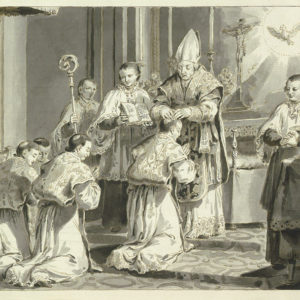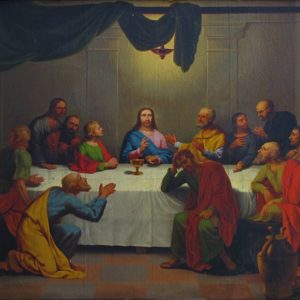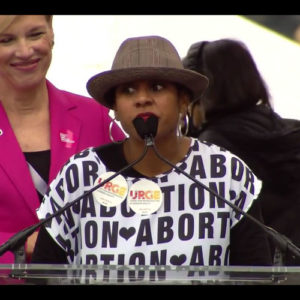The Catholic Church requires all aspiring priests and deacons to request ordination, and then to be called by their bishop. Why does she do that? Because it’s the Biblical model. And this explains where the women’s ordination movement, and the Protestant Reformation, have gone wrong.
Category: Uncategorized
St. Joseph and the Numinous
Why does the angel Gabriel tell Joseph not to “be afraid” to take Mary as his wife?
Water, Death, and Life
Water: it’s a sign of life, and a sign of death. And in Baptism, we celebrate both of these things. A guest post by Louis Masi of the Archdiocese of New York.
Are We Living in the Matrix?
If the soul doesn’t exist, then the mind is just matter, a sort of sophisticated computer. If that’s the case, we’d be lead to the absurd possibility (even likelihood) that the universe doesn’t really exist, but is just a computer simulation. Here’s why that argument is surprisingly popular right now (even being debated at the American Museum of Natural History), and three reasons where is – and all materialism – goes wrong.
(Why You Can’t Have) Jesus Without the Church
Contemporary Christianity is fond of pushing Jesus without the Church. Like its secular counterpart (in which people claim to be “spiritual, but not religious”), it’s an attempt to have the relationship without the rules. If I’m lonely or going through a tragedy, I can pray, but I don’t have to worry about fasting when I don’t want to, or being associated with a bunch of fellow believers that I look down upon.
But Jesus-without-the-Church is a rejection of Jesus.
Does St. Paul Think the Eucharist is Just Bread?
If St. Paul is teaching transubstantiation in 1 Corinthians 10-11, why does he refer to the Eucharist as “the bread”?
The Saintly Case for Catholicism
Then-Cardinal Ratzinger said in 2002, “I have often affirmed my conviction that the true apology of Christian faith, the most convincing demonstration of its truth against every denial, are the saints, and the beauty that the faith has generated. Today, for faith to grow, we must lead ourselves and the persons we meet to encounter the saints and to enter into contact with the Beautiful.”
Here’s an example of how the life and death of St. Maximilian Kolbe helped me to believe the Catholic Church’s teachings about the Virgin Mary.
Seven Answers to the “Pro-Lifers are just Pro-Birth” Argument
One of the most common ad hominem arguments against the pro-life movement is that pro-life people only really care about the unborn, and don’t care what happens after birth (or about the conditions into which the child will be born).
Often, this argument goes hand-in-glove with the argument that is pro-lifers really want to be pro-life, they have to support giving more money to such-and-such a social program, or hand out free condoms, or endorse some other politically-liberal policy. Other times, the argument is that pro-lifers need to personally adopt kids, or else be content to let them get aborted.
Here are seven answers to that argument.
The Strangeness of Biblical Imagery
One of the difficulties of accepting Christianity is that some of the things described in the Bible are just… weird. Within the first few pages, for example, you’ve got a talking snake. And even when you learn that this “snake” is actually a fallen angel, that realization doesn’t make the scene less strange. Immediately after this, we hear of “the Lord God walking in the garden in the cool of the day” (Genesis 3:8).
Quite understandably, many modern readers want to treat this whole Book as a work of fiction. But before rushing to that hasty conclusion, consider another apparently fantastical historical account, Marco Polo’s report of seeing unicorns in Ferlec (modern Indonesia)…
Four Sobering Realities About the Abortion Debate
Yesterday marked the 44th anniversary of Roe v. Wade, the Supreme Court decision in which abortion was declared to be a Constitutional right. Here are four sobering realities to consider.









